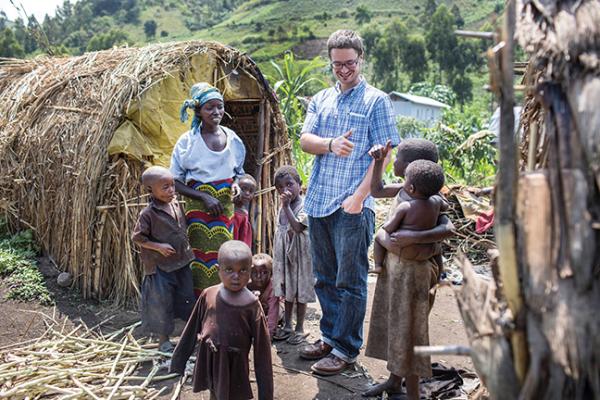MICHAEL J. SHARP was a close friend of mine. In the Democratic Republic of the Congo (DRC), he was a Mennonite witness, scholar, and peacemaker. Over the course of five years, first as a Mennonite Central Committee volunteer and then through the United Nations, Sharp cultivated relationships of trust amid dreadful violence. His work in the DRC included demobilizing armed groups, investigating human rights abuses, and reporting to the U.N. Security Council on “creating the conditions for peace” in the Great Lakes region of Africa.
On March 12, Sharp and colleague Zaida Catalan were killed while on a U.N. fact-finding mission in Congo’s central Kasai region. Earlier, they had documented five mass graves in the region. Over the months, the number had risen to 23. The bodies of Sharp and Catalan were found on March 27. The four Congolese members of their travel team remain missing.
Eastern Mennonite University, where Sharp attended as an undergrad, has an international program for peacemakers, with graduates such as Nobel Peace Prize winner Leymah Gebowee. Many return to their home countries to face political violence, torture, and death.
How do Christian peacemakers engage the loss of friends and colleagues? We train and study as hard for peace as soldiers do for war, yet we do not have to “soldier on” when one of us falls. We do not have to appear “strong for the cause”; there is no national myth that forces us to choke back our tears. Christian Peacemaker Teams, where I serve as executive director, immediately gave me leave to grieve and gather with loved ones. My colleagues and friends sat with our devastation. We did not pretend that the world made sense or that “God has everything under control.”
Read the Full Article

